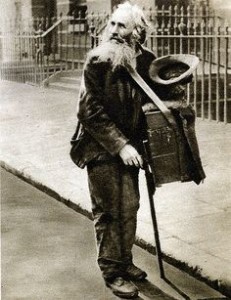 Rescued from the archive of his son are some typed copies of short articles and reports by George Hutchinson ( 1921 – 1980), one time active member of that valuable organisation Mass Observation. Founded in 1937 by poet Charles Madge, journalist Tom Harrisson and film-maker Humphrey Jennings, Mass Observation was set up to record the opinions and observations of ordinary people on national as well as day-to-day events through the UK. It continued throughout the Second World War and folded in the fifties, though it was revived in the eighties.
Rescued from the archive of his son are some typed copies of short articles and reports by George Hutchinson ( 1921 – 1980), one time active member of that valuable organisation Mass Observation. Founded in 1937 by poet Charles Madge, journalist Tom Harrisson and film-maker Humphrey Jennings, Mass Observation was set up to record the opinions and observations of ordinary people on national as well as day-to-day events through the UK. It continued throughout the Second World War and folded in the fifties, though it was revived in the eighties.
A journalist by training, Hutchinson ( as a previous Jot noted ) began as a volunteer observer and later became a ‘ whole-time investigator’ while conscripted into the Navy during 1941. The Mass Observation Archive at the University of Sussex contains some of his wartime interviews and reports as well as evidence of his long association with Tom Harrisson. His time in the Navy gave him an opportunity to collect examples of naval language which he put to good use in two of the articles we found at Jot HQ—‘The Andrew’s the Navy’, which he submitted to Lilliputmagazine, and ‘Naval Language’, which he wrote in Bradford and which may have been submitted to The Yorkshire Post. Another piece, entitled ‘The Barrel Organ: will it survive a growing indifference ?’ was also written in Bradford and may also have been meant for the same newspaper. It has been said that Hutchinson worked for The Yorkshire Post,but his article entitled ‘ Stevenage: a new design for living’, which must date from c1946, is inscribed ‘ originally written for John Bull: not used ‘, which suggests that he wasn’t a staff member of the Postat this time.
The two articles on Naval Language will be considered in a later Jot. This particular Jot will look at his piece on the Barrel Organ. In it he attributes the decline in popularity of that distinctly old-fashioned street instrument partly to the ‘ increasingly popularity ‘of the radio, but mostly to the depredations of the Aliens Act of 1912, which discouraged mainly Italian immigrants from setting up as organ grinders in the UK. Interestingly, Hutchinson observes that the Act ‘accounts for a recent estimate that, of all the hundred barrel-organs remaining in London, all are pre-war models.’
Logically, the war referred to must be the First World War, which dates this particular article to a period before the beginning of hostilities in 1939.
After explaining how the instrument worked, Hutchinson delves into its folklore, including its fifteenth-century origin in the Netherlands, from where it obtained one of its many names as the ‘ Dutch-organ’ . There is also a passage of praise from none other than Horace Walpole. But as Hutchinson observes, the novelty with which such an instrument was regarded in the eighteenth century was not likely to impress a modern audience. Hutchinson fears for its fatal decline, especially as the accompanying monkey, the ‘ nimble, red-coated, incarnation of facetious devilry ‘ had all but disappeared from the scene. He himself hadn’t seen one ‘for years’.
Hutchinson went on to write biographies of Edward Heath and Harold MacMillan. He died in London in 1980, aged fifty-nine. [R M Healey]
